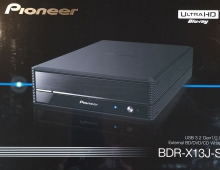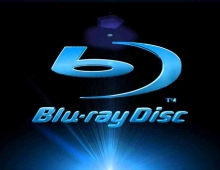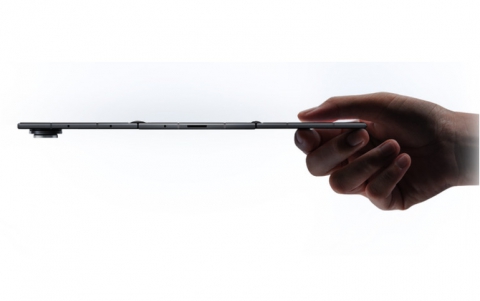
Matsushita and Sony do not budge on DVD format
The president of Matsushita Electric Industrial Co. Ltd. said on Thursday it is up to Toshiba Corp. to yield its position in talks on a unified format for next-generation DVD technology.
The comments by Kunio Nakamura are the latest sign that negotiations between officials from Toshiba, which backs HD-DVD, and Sony and Matsushita, supporters of a rival format Blu-ray.
The two sides began meeting earlier this year, aiming to avoid a prolonged battle over the format that could discourage consumers from shifting to advanced discs and stifle the industry's growth.
But both camps are also loath to establish a format based on the other group's disc structure as they have spent years and enormous amounts of money to develop their respective standards in the hope the industry would adopt them.
At stake is pole position in the multibillion dollar markets for DVD players, PC drives and optical discs.
"The talks continue, they have not collapsed," Nakamura told a group of reporters at a get-together of industry executives in Tokyo. "But Matsushita and Sony have not changed their stance. We are waiting for Toshiba's decision."
"There is still a chance to create a new format, but we will not waver on the 0.1 mm point," Nakamura said. "I call on them to bring up issues other than 0.1. Let's talk about that."
Both camps have waged aggressive public relations campaigns over the past several months, trying to woo undecided high-tech manufacturers and Hollywood film studios, whose support will be vital to either format's success.
As most regular visitors to this website know, the Blu-ray camp emphasizes the high recording capacity of its discs while HD-DVD promoters says its format would mean a less costly transition for the industry because it is very close to the structure of current discs.
It seems that the chances for a happy result (single format) are very limited. A great deal of money, in the form of royalties, would go to the winner of any such single-format decision. Prestige is also very much a factor here, especially for Sony, already troubled by claims that it has lost its innovative edge, and still smarting from its loss to Toshiba in the DVD/MMCD conflict ten years ago. It is therefore not in the financial or corporate interests of either group to yield to the other unless or until circumstances occur that force such an agreement.
On the other hand, both Sony and Toshiba, are all desperate to advance the introduction of the high-definition era of television and video, and a rapid settlement of this format conflict would certainly benefit everyone. Although this is not expected to this happen, at least anytime soon, the market could very well see both HD-DVD and Blu-Ray players, recorders, recorded video software, and recordable media all being introduced by various manufacturers throughout 2006.
But could the world live, at least for a period of time, with two incompatible formats? Possibly yes. It has done so in the past, witness the LP versus the 45 record, VHS vs Betamax, LD vs VHS etc. In each case, the public ultimately forced the elimination of one of the conflicting formats, although this often took ten or more years to accomplish. Further, today?s technology would certainly allow a single player to be designed and marketed that could play back CD, DVD, HD-DVD, and Blu-Ray recordings. Give the Chinese the incentive to make millions of such combination players each year for the world market, and they would probably surprise everyone with the results, both in quality and in price! The same would be true for drives to be used in PCs for reading the multiple formats, and writing to the most important of them...
The two sides began meeting earlier this year, aiming to avoid a prolonged battle over the format that could discourage consumers from shifting to advanced discs and stifle the industry's growth.
But both camps are also loath to establish a format based on the other group's disc structure as they have spent years and enormous amounts of money to develop their respective standards in the hope the industry would adopt them.
At stake is pole position in the multibillion dollar markets for DVD players, PC drives and optical discs.
"The talks continue, they have not collapsed," Nakamura told a group of reporters at a get-together of industry executives in Tokyo. "But Matsushita and Sony have not changed their stance. We are waiting for Toshiba's decision."
"There is still a chance to create a new format, but we will not waver on the 0.1 mm point," Nakamura said. "I call on them to bring up issues other than 0.1. Let's talk about that."
Both camps have waged aggressive public relations campaigns over the past several months, trying to woo undecided high-tech manufacturers and Hollywood film studios, whose support will be vital to either format's success.
As most regular visitors to this website know, the Blu-ray camp emphasizes the high recording capacity of its discs while HD-DVD promoters says its format would mean a less costly transition for the industry because it is very close to the structure of current discs.
It seems that the chances for a happy result (single format) are very limited. A great deal of money, in the form of royalties, would go to the winner of any such single-format decision. Prestige is also very much a factor here, especially for Sony, already troubled by claims that it has lost its innovative edge, and still smarting from its loss to Toshiba in the DVD/MMCD conflict ten years ago. It is therefore not in the financial or corporate interests of either group to yield to the other unless or until circumstances occur that force such an agreement.
On the other hand, both Sony and Toshiba, are all desperate to advance the introduction of the high-definition era of television and video, and a rapid settlement of this format conflict would certainly benefit everyone. Although this is not expected to this happen, at least anytime soon, the market could very well see both HD-DVD and Blu-Ray players, recorders, recorded video software, and recordable media all being introduced by various manufacturers throughout 2006.
But could the world live, at least for a period of time, with two incompatible formats? Possibly yes. It has done so in the past, witness the LP versus the 45 record, VHS vs Betamax, LD vs VHS etc. In each case, the public ultimately forced the elimination of one of the conflicting formats, although this often took ten or more years to accomplish. Further, today?s technology would certainly allow a single player to be designed and marketed that could play back CD, DVD, HD-DVD, and Blu-Ray recordings. Give the Chinese the incentive to make millions of such combination players each year for the world market, and they would probably surprise everyone with the results, both in quality and in price! The same would be true for drives to be used in PCs for reading the multiple formats, and writing to the most important of them...





















